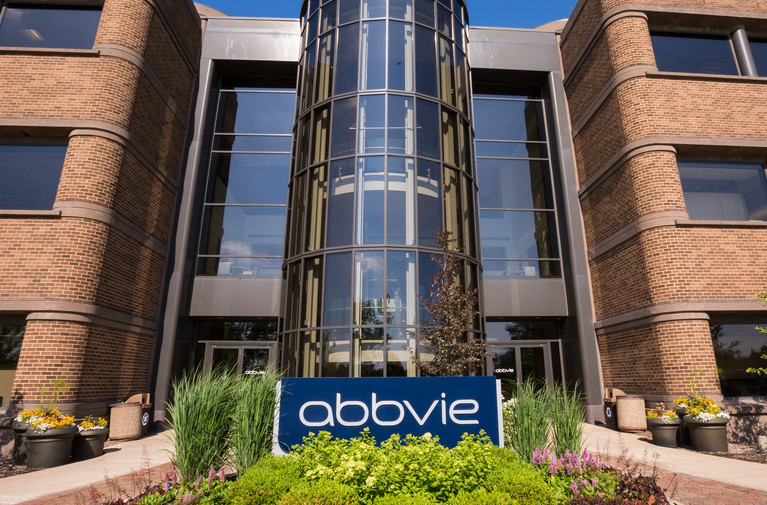Former AbbVie Sales Rep’s Fraud Claims Dismissed in Whistleblower Suit, 7th Circuit Rules
Chicago, IL – September 4, 2025 – The U.S. Court of Appeals for the Seventh Circuit has upheld the dismissal of a whistleblower lawsuit filed by former AbbVie sales representative Jeffrey Lewis, ruling that he failed to provide sufficient evidence that the pharmaceutical giant retaliated against him for alleging fraudulent marketing practices. The unanimous decision, issued on September 3, 2025, marks the latest setback in Lewis’s False Claims Act (FCA) suit, which accused AbbVie of illegally promoting off-label use of the antipsychotic drug Vraylar to treat major depressive disorder.
Case Background
Lewis, a former AbbVie sales representative, filed the lawsuit in 2022, alleging that he faced retaliation, including termination, after refusing to participate in what he claimed was a scheme to market Vraylar for unapproved uses. The FCA prohibits submitting false claims to the government, such as billing Medicare or Medicaid for off-label drug prescriptions not approved by the FDA. Lewis argued that his complaints about these practices to AbbVie management constituted protected whistleblower activity, and his subsequent firing violated the FCA’s anti-retaliation provisions under 31 U.S.C. §3730(h).
The district court dismissed the case in 2024, finding that Lewis’s allegations lacked specificity and failed to show that AbbVie was aware he was engaging in protected activity—namely, reporting fraud against the government. The Seventh Circuit, in a decision authored by Judge Joshua P. Kolar, affirmed this ruling, stating that Lewis’s concerns to AbbVie focused on potential FDA regulatory violations rather than fraud against the government, which is a critical distinction under the FCA.
Seventh Circuit’s Reasoning
The court’s 18-page opinion emphasized that for an FCA retaliation claim to succeed, the whistleblower must demonstrate that the employer knew the employee was engaging in activity protected under the FCA, such as reporting false claims submitted to the government. Lewis’s complaints, raised between 2017 and 2019, centered on AbbVie’s alleged off-label marketing but did not explicitly indicate that he believed the company was defrauding federal programs like Medicare or Medicaid. “Lewis’s allegations imply at most that AbbVie risked violating FDA regulations, not that it was submitting false claims,” Kolar wrote, noting that this distinction was fatal to his case.
The court also rejected Lewis’s argument that AbbVie’s internal investigation into his complaints showed awareness of potential fraud. The judges found that his reports were too vague to put the company on notice of FCA-protected activity, and his termination was not sufficiently linked to those complaints. The ruling aligns with prior Seventh Circuit precedents requiring clear evidence that an employer knew of whistleblower activity targeting government fraud.
Broader Context and Implications
Lewis’s case was one of several FCA lawsuits against AbbVie in recent years. In 2023, the company settled a separate whistleblower suit for $2.7 million, which alleged that AbbVie used unlawful kickbacks to encourage prescriptions of its blockbuster drug Humira. That case, filed by a nurse ambassador, focused on violations in Florida and resulted in a $756,000 reward for the whistleblower. In another instance, AbbVie faced a 2022 lawsuit accusing its predecessor, Allergan, of using fraudulent patents to extend monopolies on Alzheimer’s drugs, though that case was dismissed under the FCA’s public disclosure bar.
The Seventh Circuit’s decision underscores the high bar for FCA retaliation claims, particularly the need to demonstrate that employers were explicitly aware of whistleblower activity tied to government fraud. Legal experts note that this ruling may deter similar lawsuits unless plaintiffs can provide detailed evidence of fraudulent claims and employer knowledge. “The court is signaling that vague complaints about regulatory issues won’t suffice—you need to connect the dots to government payments,” said Sarah Thompson, a whistleblower law attorney based in Chicago.
Reaction and Next Steps
Lewis’s legal team expressed disappointment, arguing that the ruling sets an overly stringent standard for whistleblowers. “Mr. Lewis raised serious concerns about AbbVie’s practices, and the company’s response was to silence him,” said his attorney, Mark Reynolds, in a statement. They are considering further appeals, though the Supreme Court rarely grants certiorari in such cases.
AbbVie welcomed the decision, with a spokesperson stating, “We are pleased with the court’s thorough review and its affirmation that the claims lacked merit. AbbVie remains committed to ethical practices and compliance with all regulations.” The company has faced scrutiny over its marketing practices but maintains that its actions comply with FDA and federal guidelines.
The dismissal leaves Lewis without recourse in this case, though it does not preclude future FCA claims against AbbVie if new evidence emerges. For now, the ruling reinforces the challenges whistleblowers face in proving retaliation under the FCA, particularly in the pharmaceutical industry, where off-label marketing allegations are common but difficult to substantiate without direct evidence of fraudulent claims.
Sources: Law360, Bloomberg Law, Reuters, Schneider Wallace
